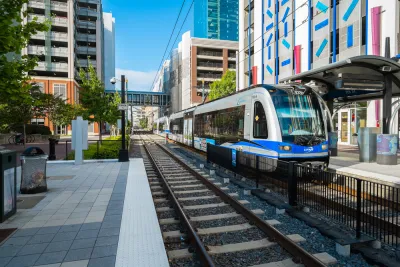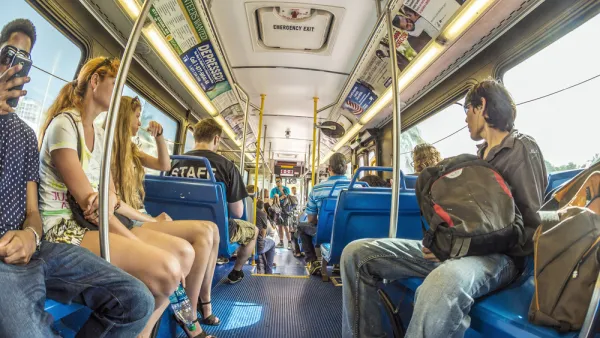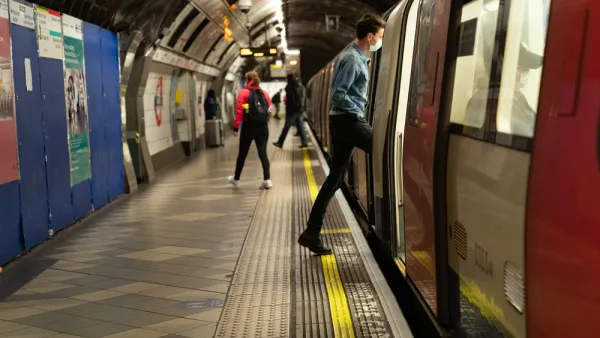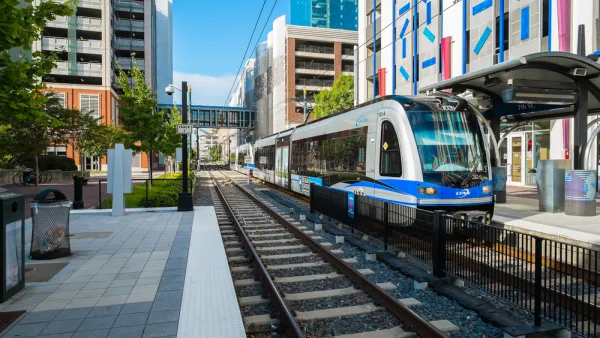The agency's CEO says the system needs more funding to make service improvements and make the shift to an electrified fleet.

With transportation making up 40 percent of the Charlotte region's carbon emissions, the local transit agency is calling for a sales tax increase to fund more sustainable transit and encourage a mode shift to its rail and bus services.
As David Boraks reports, the head of the Charlotte Area Transit System (CATS), along with other city leaders, has proposed a 1-cent sales tax increase that would fund Charlotte's mobility network. The agency wants to improve service frequency, buy an additional 100 buses, and hire more operators and mechanics. "At the moment, the system remains hobbled by the coronavirus pandemic. Ridership is stagnant and worse, CATS is facing staff shortages due to illness as well as a high number of vacancies in existing positions."
CATS CEO JOhn Lewis highlighted the importance of getting more people to ride buses and trains: "We're doing things, where we're converting our fleet to electric buses. And we can talk about that if you want. But the best thing that we can do to help is to have a system that is so reliable that people want to get out of their cars."
The proposal faces doubts from some local communities who worry they won't benefit and may not reach the ballot this November.
FULL STORY: Public transit is a climate change tool, but CATS chief says he needs funding to make it better

National Parks Layoffs Will Cause Communities to Lose Billions
Thousands of essential park workers were laid off this week, just before the busy spring break season.

Retro-silient?: America’s First “Eco-burb,” The Woodlands Turns 50
A master-planned community north of Houston offers lessons on green infrastructure and resilient design, but falls short of its founder’s lofty affordability and walkability goals.

Delivering for America Plan Will Downgrade Mail Service in at Least 49.5 Percent of Zip Codes
Republican and Democrat lawmakers criticize the plan for its disproportionate negative impact on rural communities.

Test News Post 1
This is a summary

Test News Headline 46
Test for the image on the front page.

Balancing Bombs and Butterflies: How the National Guard Protects a Rare Species
The National Guard at Fort Indiantown Gap uses GIS technology and land management strategies to balance military training with conservation efforts, ensuring the survival of the rare eastern regal fritillary butterfly.
Urban Design for Planners 1: Software Tools
This six-course series explores essential urban design concepts using open source software and equips planners with the tools they need to participate fully in the urban design process.
Planning for Universal Design
Learn the tools for implementing Universal Design in planning regulations.
EMC Planning Group, Inc.
Planetizen
Planetizen
Mpact (formerly Rail~Volution)
Great Falls Development Authority, Inc.
HUDs Office of Policy Development and Research
NYU Wagner Graduate School of Public Service





























